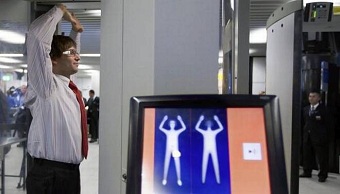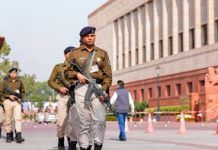The government has made it mandatory for 84 airports in the country to install full-body scanners to screen air travellers within a year and issued a Standard Operating Procedure for their use. The 84 airports include 26 hyper-sensitive airports and 58 sensitive airports. Other airports have two years’ time to introduce these scanners.
This equipment will replace walk-through metal detectors and passengers will have to remove shoes, belts, jackets, thick clothing and be “divested” of all metallic items, which is a practice at most prominent airports across the world, according to the SOP laid down in a Bureau of Civil Aviation Security (BCAS) circular sent to all airports in April.
However, 10% of passengers, at random, will also be subjected to full pat-down searches.
Walk-through metal detectors and hand-held metal detectors cannot detect non-metallic weapons and explosives. Body scanners detect both metallic and non-metallic items concealed on the body,” reads the circular on reasons for the change.
Following concerns over these machines generating naked images of passengers, the BCAS has mandated privacy filters. As a result, these scanners will produce only an outline or a mannequin-like image, which is the same for all genders. A yellow box appears on the body image to highlight areas that may need further screening. “Scanner shall provide image-free solution using a generic mannequin. Threats shall be graphically presented,” reads the circular.
These scanners use millimetre wave technology, which means passengers will not be subjected to harmful X-ray radiation. These scanners will help airports improve passenger throughput as they are required to screen a passenger in eight seconds and 300 passengers per hour, according to the technical specifications spelt out by the BCAS.








